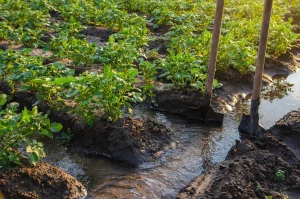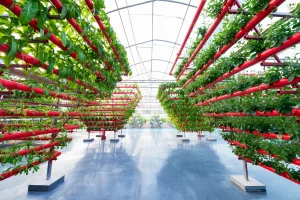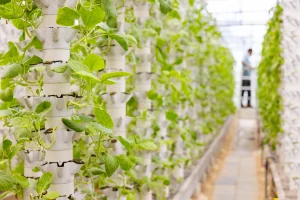Smart agriculture is a modern agricultural method that increases productivity by using technology. It also enables more efficient management of water and soil resources. Therefore, agricultural processes are optimized with sensors and artificial intelligence .In this way, farmers can make more informed decisions and increase production efficiency. Moreover, weather and soil analysis are used to plan planting. As a result, costs can be reduced by minimizing water and fertilizer use. Furthermore, drone technology is becoming widespread to monitor the condition of crops. In this way, diseases and pests can be detected early and intervened. Furthermore, smart irrigation systems save water. Therefore, sustainability in agricultural production is supported.
Table of Contents
- What is Smart Agriculture
- What is Smart Agriculture Aiming for?
- Smart Agriculture Machines
- Smart Agriculture Systems Smart
- Agriculture Solutions
- Conclusion
- Frequently Asked Questions
What is Smart Agriculture
Modern agriculture is a method that increases productivity by utilizing technology. Therefore, agricultural processes are optimized with sensors and artificial intelligence. This approach allows farmers to enhance production efficiency by making better-informed decisions. Additionally, weather and soil analysis help in planning the planting process. As a result, water and fertilizer usage can be minimized, leading to reduced costs. Furthermore, drone technology is becoming widespread to monitor the condition of crops. In this way, diseases and pests can be detected early and intervened. Furthermore, smart irrigation systems save water. Therefore, sustainability in agricultural production is supported. Moreover, automated harvesting machines reduce labor costs. In this case, a faster and more efficient harvesting process is realized.
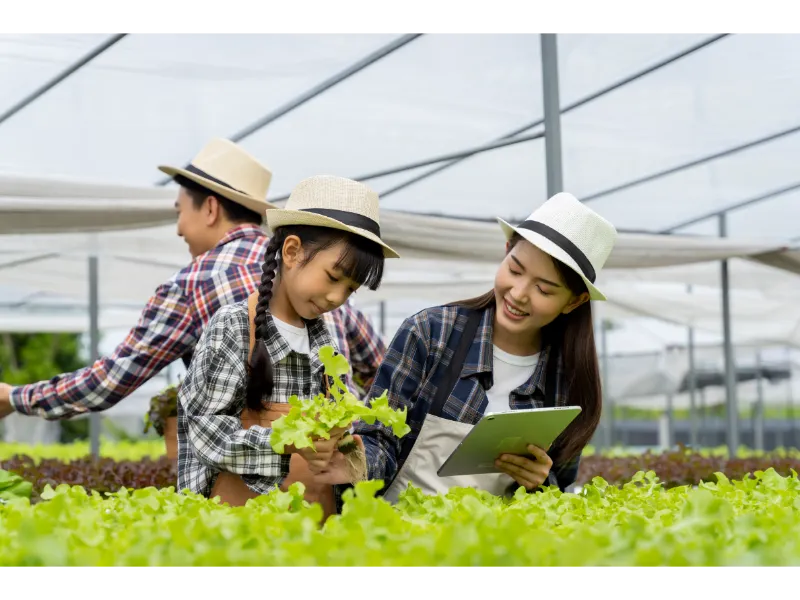
What is Smart Agriculture Aiming for?
Smart agriculture aims to make agricultural production efficient, sustainable and technological. It also minimizes environmental impacts by using natural resources more effectively. Therefore, innovative systems are being developed that reduce water and fertilizer consumption. In this way, farmers can increase production capacity by reducing costs. Moreover, climate change negatively affects agricultural production. In this case, farmers are informed in advance through weather analysis. Moreover, the nutritional value of the soil is measured using precision agriculture methods. As a result, the most appropriate planting and fertilization plan is created. Furthermore, automatic irrigation systems prevent water waste. Therefore, water resources are used more efficiently. Furthermore, drone and sensor technologies constantly monitor crops. In this case, diseases and pests are detected early and intervened.
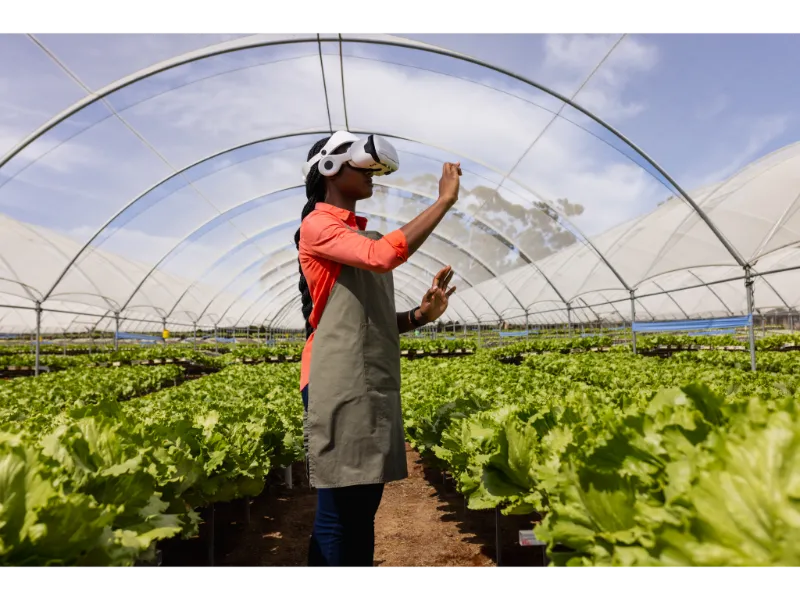
Smart Agriculture Machines
Smart agricultural machines are technological tools that make agricultural production efficient and sustainable. They also enable farmers to complete production processes faster by reducing labor. Therefore, automatic irrigation systems support the efficient use of resources by saving water. In this way, costs are reduced by ensuring sustainability in agriculture. In addition, drone technology facilitates monitoring of fields and early detection of diseases. This enables rapid intervention against pests. Moreover, sensor tractors manage planting and harvesting processes more precisely. In this way, higher yields can be achieved by preserving soil fertility. Moreover, artificial intelligence-supported machines analyze agricultural data and offer recommendations to farmers. Therefore, conscious agricultural practices are becoming widespread and production processes are being optimized.
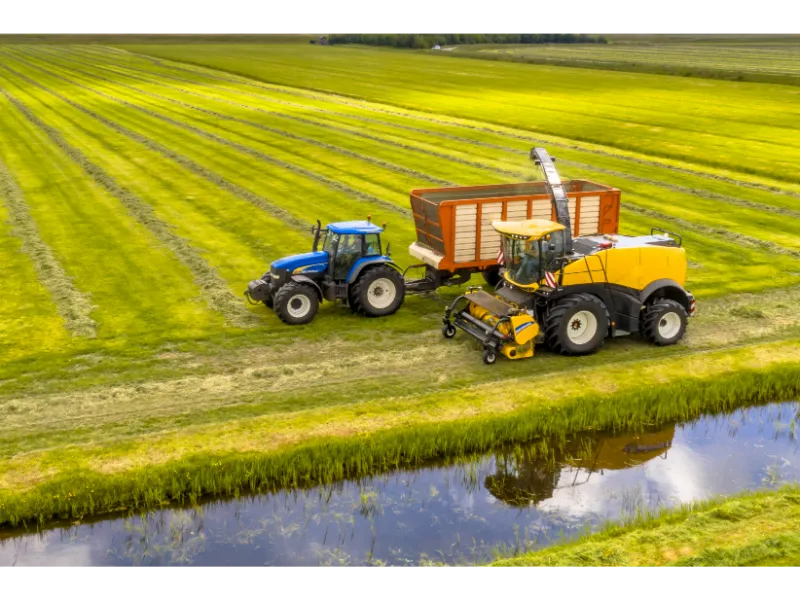
Smart Agriculture Systems Smart
Smart agricultural systems aim to make agricultural production more efficient with technological solutions. They also ensure effective management of resources by optimizing water, fertilizer and energy use. Therefore, sensors and artificial intelligence-supported analyses offer great convenience to farmers. In this way, production processes become more controlled and efficient. Moreover, drone technology helps to monitor the growth process of crops. In this case, disease and pest detection can be done earlier. Furthermore, smart irrigation systems reduce costs by saving water. In this way, sustainable use of water resources is promoted. Furthermore, automated fertilization systems work based on soil analysis. Therefore, nutrients are applied in the right amount. Furthermore, smart agricultural systems play a major role in combating climate change. In this case, farmers are able to develop weather-adaptive strategies.
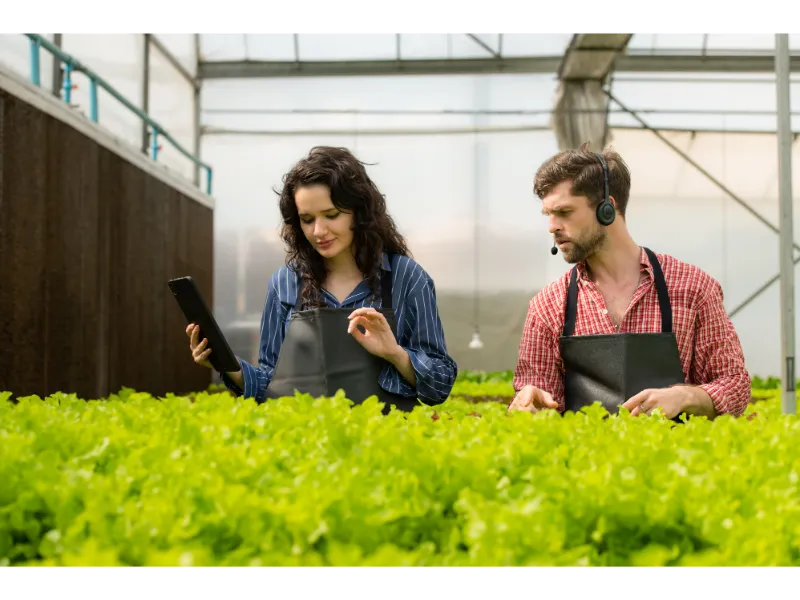
Agriculture Solutions
Smart agriculture solutions make agricultural production more efficient and sustainable with modern technologies. They also enable farmers to use resources more effectively. Therefore, sensors and artificial intelligence-supported systems are of great importance. In this way, planting, irrigation, and harvesting processes are managed in a more controlled manner. Moreover, smart irrigation systems reduce costs by lowering water consumption. As a result, water resources are used more efficiently. Furthermore, drone technology monitors crops and detects diseases and pests early. In this way, crop losses can be minimized. Furthermore, automated fertilization systems provide nutrients according to the soil’s needs. Therefore, excessive fertilizer use is prevented. Furthermore, solutions play an important role in combating climate change. In this case, early warnings are provided to farmers by analyzing weather data.
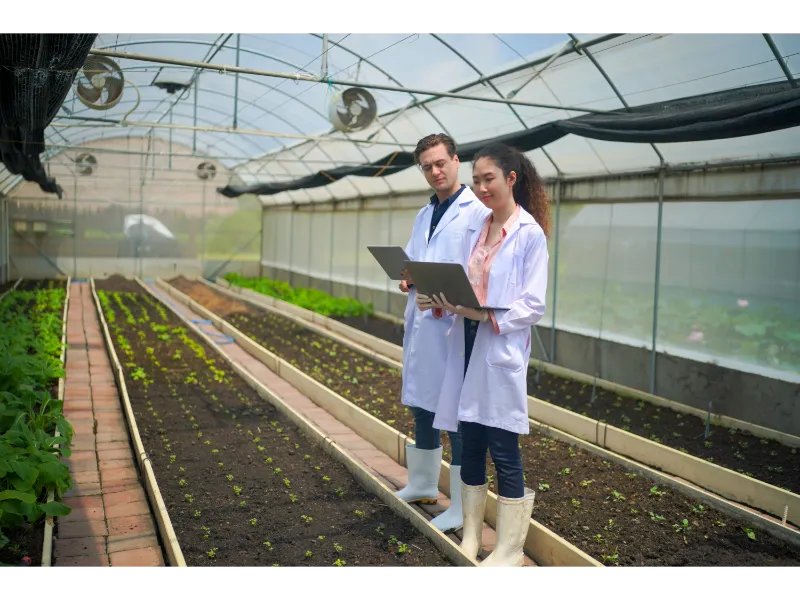
Conclusion
Smart agriculture offers environmentally friendly and sustainable systems that increase productivity in agricultural production. In addition, more efficient use of water, fertilizer and energy resources is of great importance. Therefore, farmers need to adapt to modern technologies. In this way, production costs are reduced while quality and efficiency are increased. Moreover, artificial intelligence and sensor-assisted systems facilitate agricultural decision-making processes. In this case, climate change and environmental risks can be managed more effectively. Moreover, technologies such as smart irrigation, drone agriculture and data analytics are becoming widespread. In this way, sustainability in agricultural production is ensured. Moreover, solutions play a critical role for food security and economic development. Therefore, the agriculture of the future is shaped by technology and becoming more innovative.
Frequently Asked Questions
What are smart agriculture solutions? Smart agriculture solutions are systems that use technology to make agricultural production efficient, sustainable and automated.
What technologies do smart agriculture solutions include? It includes technologies such as sensors, artificial intelligence, drones, smart irrigation systems and data analytics platforms.
How is AI used in smart agriculture? Artificial intelligence is used in areas such as weather forecasting, pest detection and efficient irrigation scheduling.
How do smart agriculture systems reduce water consumption? Smart irrigation systems measure soil moisture and ensure that only the required amount of water is used.
How is drone technology used in smart agriculture? For instance, drones monitor crops to detect diseases and optimize spraying processes.
In what ways does smart agricultural machinery decrease the reliance on labor? Automated tractors and robotic harvesters make agricultural operations less dependent on human labor.
How do smart agriculture solutions help tackle climate change? By ensuring efficient resource utilization, they reduce carbon emissions and support environmental sustainability.
Can small-scale farmers use smart agriculture technologies? Yes, thanks to cost-effective solutions, small-scale farmers can also benefit from smart agriculture systems.
Which crops do smart agriculture solutions work best for? They increase productivity for many agricultural crops such as fruits, vegetables, grains and industrial crops.
How will smart agriculture solutions evolve in the future? With the integration of AI and IoT, more precise farming methods will be developed and production processes will become smarter.

 English
English
 Türkçe
Türkçe
 Ελληνικά
Ελληνικά
 Deutsch
Deutsch
 ქართული
ქართული
 العربية
العربية


